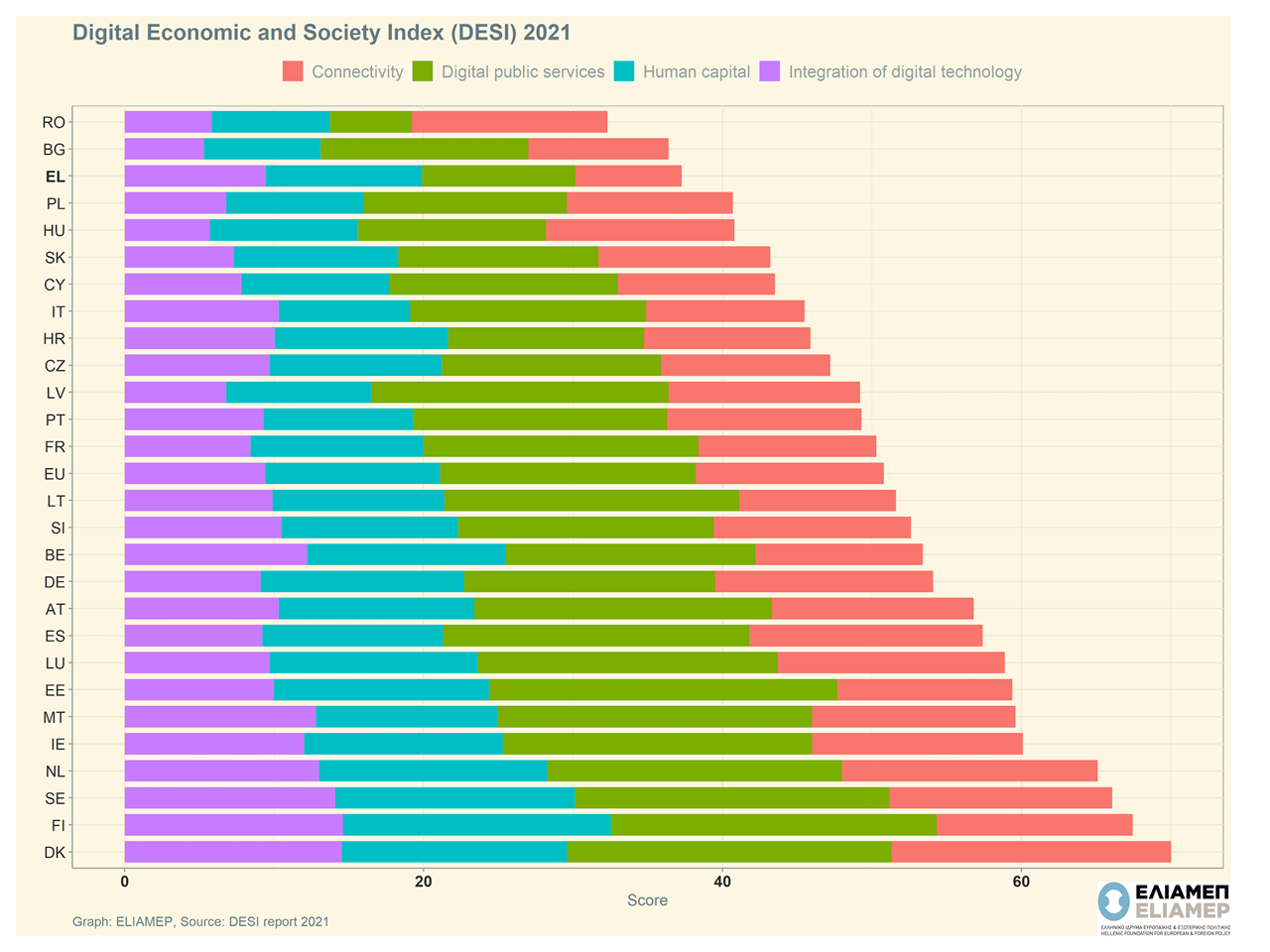The European Commission publishes annually the Digital Economy and Society Index (DESI), which evaluates the progress made by member states on issues of digital transition and policy. As the Greek national plan under the Recovery and Resilience Facility devotes 23.3% of the provided grants and loans on targets of digital transition, the DES Index proves valuable to set the digital priorities of Greece.
Four parameters are taken into account for the computation of the DES Index: human capital, integration of digital technologies into business activities, connectivity and digital public services. Greece presents strong potential, however it remains low compared to the European average. Achieving an overall score of 37,7 points, Greece is ranked 25th out of 27 member states (see graph).
As far as human capital is concerned, while the share of individuals with at least basic digital skills is close to the European average (51% in Greece, 56% in the EU), the sectors in which Greece lacks behind are the share of individuals with above basic digital skills (23% in Greece, 31% in the EU), as well as the share of enterprises that provide training in Information and Communication Technology (ICT) (only 12% in Greece, 20% in the EU). Even though the share of ICT specialists remains low (2% in Greece, 4.3% in the EU), Greece is ranked first in the share of women specialists in ICT (27% out of all ICT specialists in Greece, 19% in the EU). Regarding the integration of digital technologies into business activities, while the share of Greek businesses using social media is low (19% in Greece, 23% in the EU), enterprises that adopt advanced digital technologies (e.g. Artificial Intelligence) as well as the share of businesses that use electronic information sharing are well above the EU average (34% and 38% respectively in Greece, 25% and 36% in the EU). In connectivity, Greece has made significant progress in fast broadband (NGA) coverage. Additionally, our country scores high in the 5G readiness indicator, which means that almost the total 5G pioneer spectrum harmonised at EU level has been assigned. Finally, regarding digital public services, even though the availability of digital public services for both citizens and businesses remains low compared to the EU average (54 for both citizens and businesses in Greece, 75 for citizens and 84 for businesses in the EU), the introduction of the e-government portal “Gov.gr” in 2020, has significantly contributed to the improvement of Greece’s score. Currently the portal hosts 1,119 digital services, while in March 2020 it only hosted 501 services. Notably, in 2018 all digital transactions (logins and interactions) with the Greek government stood at 8.8 million, whereas in 2020 this increased 11-fold to 94 million.
Greece has adopted an ambitious plan for its digital transition. To successfully carry it, effective collaboration between the private and public sector is required. This would also ensure that all positive spillovers flow throughout the whole social spectrum. It is acknowledged that there are positive signs that Greece is able to converge to the European standards despite starting from a low benchmark.




